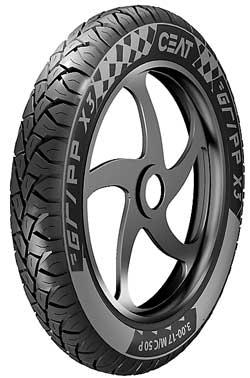07 Sep 2020 - {{hitsCtrl.values.hits}}
CEAT Kelani Holdings has announced an 85 percent increase in the production of tyres for the ‘two-wheeler’ segment over just three months, as a full-bodied response to the needs of the local market consequent to the temporary import restrictions introduced by the government.

Maximising capacity utilisation at its manufacturing plants at Kelaniya and Kalutara, the company pushed production of tyres for motorcycles and scooters from 27,000 units a month in June 2020 to 41,000 per month in July and August, and is on target to produce 50,000 tyres in September, increasing volumes by 52 percent in the first step and by an incremental
22 percent thereafter.
The sharp increases in production of tyres for the two-wheeler segment follows similar ramping up of production of truck and bus tyres as well as passenger car radials by CEAT Kelani, which prior to these increases was producing half of Sri Lanka’s pneumatic
tyre requirements.
To achieve the increases in two-wheeler capacity, the company said it had utilised available capacity at its three-wheeler tyre plant in Kalutara.
CEAT Kelani currently manufactures 32 different types of scooter and motorcycle tyres in 43 varying specifications, and now caters to 37 percent of local market requirements for
two-wheeler tyres.
“The import restrictions challenge domestic industries to show what they are truly capable of, and we are pulling out all the stops to fully utilise the capacity we have to support the government’s initiative of import substitution through increased domestic manufacturing,” CEAT Kelani Managing Director Ravi Dadlani said.
“We are continuing to look at ways of meeting demand for the most popular categories and sizes of tyres, and are keeping the government informed of the products that we are not equipped to manufacture, so that they can be imported.”
CEAT’s increased production of truck and bus tyres has resulted in the company producing 100 percent of the segment’s requirements and enabled the government to make a saving of Rs.11 billion a year in foreign exchange.
The company’s latest initiative in the two-wheeler tyre segment is estimated to enable a further saving of Rs.350 million a year through import substitution, Dadlani disclosed.
The expansion of production capacity for this segment of tyres has resulted in a 100 percent increase in the production of sizes 90/90-12 TL and 90/100-10 TL that fit popular scooter models such as Honda Dio, Yamaha Ray ZR, Honda Grazia, TVS Wego, and Suzuki Burgman.
Meanwhile, CEAT’s production of tyre size 90/90-17 TL that fits motorcycle models such as TVS Apache, Bajaj Pulsar 160 NF and Bajaj Pulsar 180 has increased by 400 percent, and the company has achieved a 100 percent increase in the production of the 100/80-17 TL tyre that is required for the popular Yamaha FZ.
Production of tyres for Bajaj Pulsar 150, Bajaj CT 100, Bajaj Platina, and TVS Heavy Duty Super XL has also increased significantly, the company said.
Notably, CEAT Kelani Holdings has kept the prices of its tyres unchanged since December 2019 to support customers and the economy, despite the additional investments made in increasing capacity and an increase in market prices due to demand.
CEAT Kelani Holdings is considered one of the most successful India – Sri Lanka joint ventures in the manufacturing sector. The joint venture’s cumulative investment in Sri Lanka to date totals Rs.8 billion, inclusive of Rs.3 billion committed in January 2018 for expansion of volumes, technology upgrades and new product development.
The company’s manufacturing operations in Sri Lanka encompass pneumatic tyres in the radial (passenger cars, vans and SUVs), commercial (Bias-ply and radial), motorcycle, three-wheeler and agricultural vehicle segments.
18 Nov 2024 2 hours ago
18 Nov 2024 3 hours ago
18 Nov 2024 3 hours ago
18 Nov 2024 3 hours ago
18 Nov 2024 3 hours ago